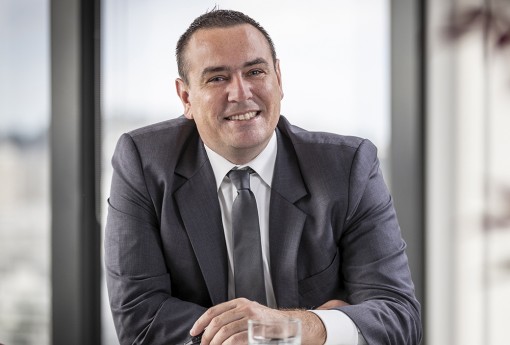Our Work
Simcro case study
In an ordinary industrial block on a regular Hamilton street, lies the home of one of New Zealand’s ‘quiet achievers’ in the global animal health industry.
What Jarden did for Simcro.
‘After an unexpected decision from the regulator, it was fantastic to be able to turn this deal around and deliver a price that exceeded the original deal. Both sides were very pleased with the final outcome.’ - David Watt, Managing Director, Investment Banking
In an ordinary industrial block on a regular Hamilton street, lies the home of one of New Zealand’s ‘quiet achievers’ in the global animal health industry.
Simcro is an agritech company that designs and manufactures delivery systems such as injection devices, topical applicators and oral applicators for animal pharmaceuticals. Simcro’s products are exported around the world and predominantly used to maintain health in ruminant animals, and also in pets.
‘Over the last two decades, Simcro has built solid relationships with the major international pharmaceutical companies and is the global number one in a strong niche market,’ says Managing Director, Investment Banking at Jarden, David Watt.

Following the sale of a controlling interest to global private equity firm The Riverside Company, Simcro had experienced significant growth. Simcro’s shareholders were ready to test the market, and invited Jarden to pitch to manage the sale process.
‘From the outset we could see that an important part of the sales process would involve identifying buyers who would like to own a business like Simcro, which had carved out a global business in a niche market segment,’ says David. ‘We recommended that the vendors and their advisers should get on the road and talk to key buyers around the world.’
Jarden was appointed to manage the sales process and worked closely with the company and the shareholders to prepare Simcro for sale. ‘We did lot of research, thinking laterally and globally to identify the right potential buyers.

‘We travelled to Europe and Asia to meet with a handful of prospects who were highly engaged with the opportunity. That gave Riverside and shareholders confidence to formally embark on the sales process.’
Following a competitive process, a sale and purchase agreement was signed by the leading party and Simcro’s shareholders in April 2016, subject to approval by the Overseas Investment Office. But with an election campaign underway and a possible change of government on the horizon, no decision was forthcoming from the OIO for more than six months. Shortly after the election in October 2016, came the unexpected news that the OIO was likely to decline the application, due to concerns specific to the buyer.
‘The original purchaser was a venerable European company that has been listed on its home stock exchange for over 100 years,’ says David.

‘It was a real surprise when the OIO rejected the deal. ‘We had to move quickly to re-engage with parties who we had previously worked with. While these conversations were initially delicate, Swiss agritech company Datamars was strongly motivated to complete the transaction.’
Six intense weeks later, the vendors signed a new sale and purchase agreement, concluding a stronger deal than had been agreed originally.
‘After a long period of waiting and an unexpected result from the regulator, it was fantastic to be able to turn this deal around, by successfully re-engaging with Datamars and delivering a price that exceeded the original deal,’ says David. ‘There is a great synergy between the two companies and both parties were very happy.’



